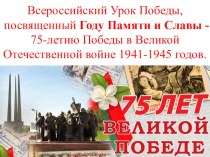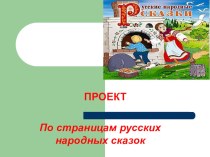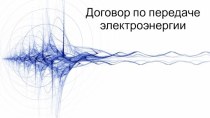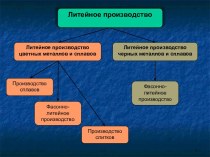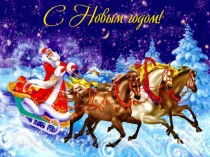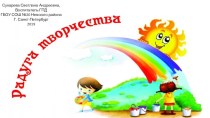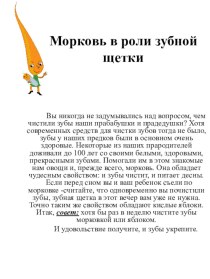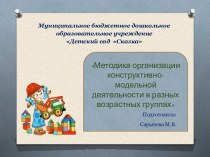- Главная
- Разное
- Бизнес и предпринимательство
- Образование
- Развлечения
- Государство
- Спорт
- Графика
- Культурология
- Еда и кулинария
- Лингвистика
- Религиоведение
- Черчение
- Физкультура
- ИЗО
- Психология
- Социология
- Английский язык
- Астрономия
- Алгебра
- Биология
- География
- Геометрия
- Детские презентации
- Информатика
- История
- Литература
- Маркетинг
- Математика
- Медицина
- Менеджмент
- Музыка
- МХК
- Немецкий язык
- ОБЖ
- Обществознание
- Окружающий мир
- Педагогика
- Русский язык
- Технология
- Физика
- Философия
- Химия
- Шаблоны, картинки для презентаций
- Экология
- Экономика
- Юриспруденция
Что такое findslide.org?
FindSlide.org - это сайт презентаций, докладов, шаблонов в формате PowerPoint.
Обратная связь
Email: Нажмите что бы посмотреть
Презентация на тему Early american literature
Содержание
- 2. Early discoveriesLief Ericson and the VikingsOpened the
- 3. Columbus’s coat of arms
- 4. ColonizationSpanish colonies – Mexico, West Indies, South
- 6. Massachusetts Bay ColonyPuritans, Separatists (set out for
- 7. ColoniesThe Middle Atlantic Colonies - Pennsylvania and
- 8. ColoniesThe Southern Colonies- Virginia, Maryland, North Carolina,
- 9. Time line1634 – Maryland accepted Catholics1638 –
- 10. Time Line1692 – The Salem Witch trials1702
- 11. Salem Witch TrialsFebruary 1692 and May 1693"And
- 12. Ben FranklinInventing – Stove, lightning rod, bifocalsMedicine
- 13. Franklin’s AlmanackBegan publishing Poor Richard's Almanack on
- 14. Franklin’s AlmanackLight purse, heavy heart.Great Talkers, little
- 15. 13 virtues to live bytemperance silence order
- 16. Background Diversity of cultures: Native Americans
- 17. BackgroundDiversity of genres:Until the 17th century –
- 18. Between 1820 ad 1865Fiction: sentimental novel, Gothic
- 19. 18th and 19th centuries B.Franklin, Thomas Paine,
- 20. Frontier novelJames Fenimore Cooper (1789-1851)Adventure romances, set
- 21. James Fenimore Cooper1821 – The Spy: A
- 22. James Fenimore CooperNatty Bumpoo – the Leatherstocking,
- 23. James Fenimore CooperNatty Bumpoo – combines Indian
- 24. Edgar Allan Poe (1809-1849)
- 25. Edgar Allan PoeFoster family6 – 11 –
- 26. Edgar Allan Poe (1809-1849)Gothic fiction which aspired
- 30. Edgar Allan Poe1840 – The Fall of
- 31. Edgar Allan Poe - poetry1845 – The
- 32. The Romantic Period (1820-1860)The first great literary
- 33. The Romantic Period (1820-1860)Heroic figures larger than
- 34. The Romantic Period (1820-1860)One reason – the
- 35. Nathaniel Hawthorne (1804-1864)The House of the Seven
- 36. The Scarlet Letter (1850)An allegory of sin
- 37. Скачать презентацию
- 38. Похожие презентации
Early discoveriesLief Ericson and the VikingsOpened the way for other Viking voyagesRough sea, climate and injuries1963 – the ruins of some Viking houses found at L’Anse-aux-Meadows in Newfoundland
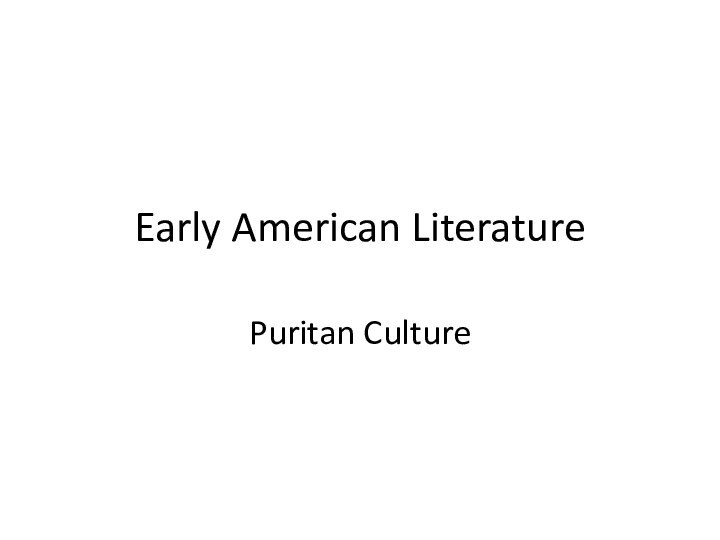
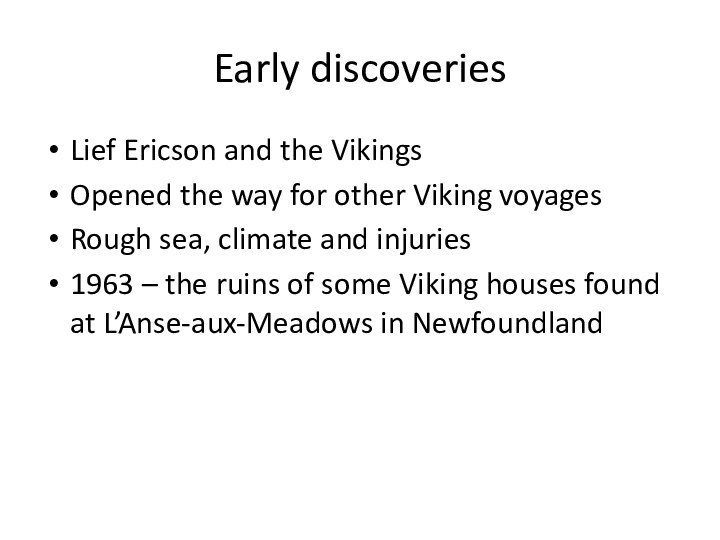
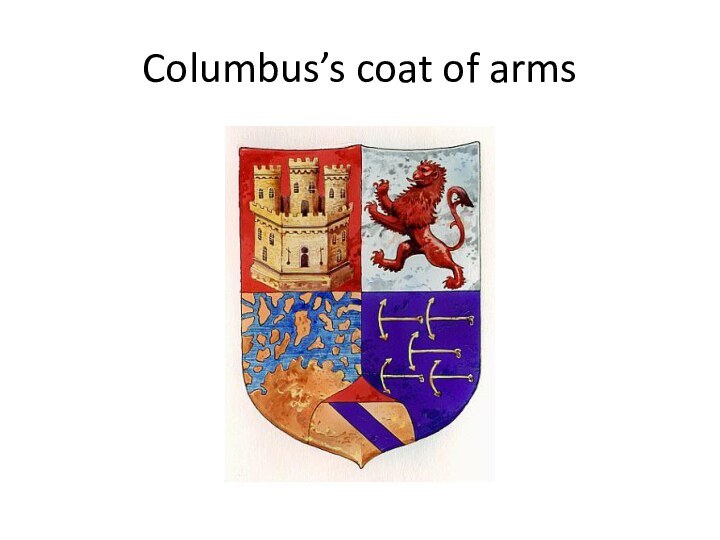
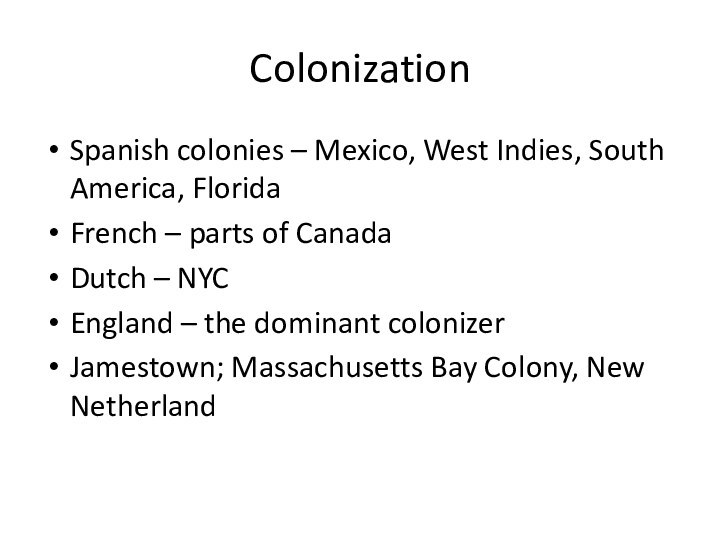
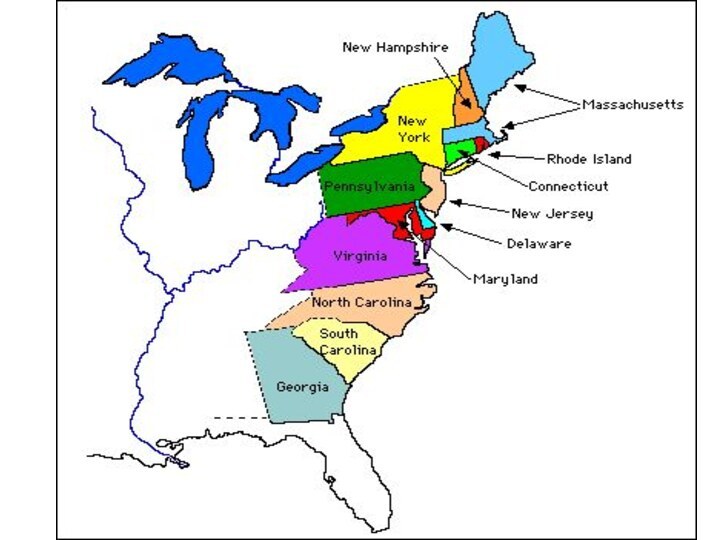
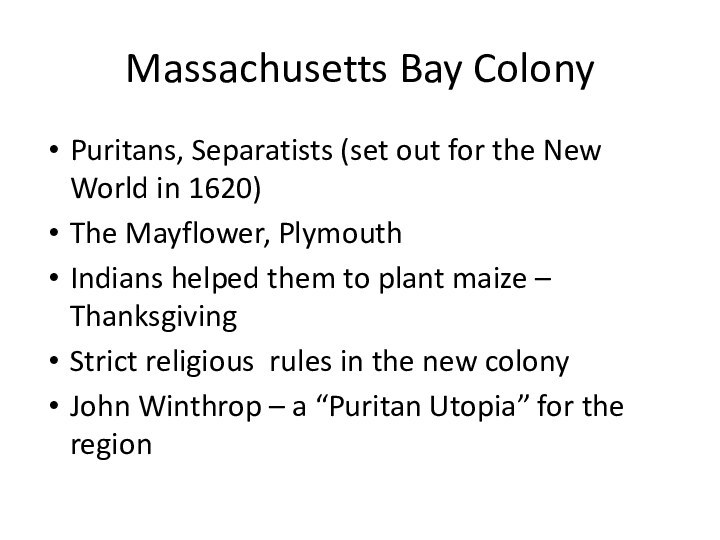
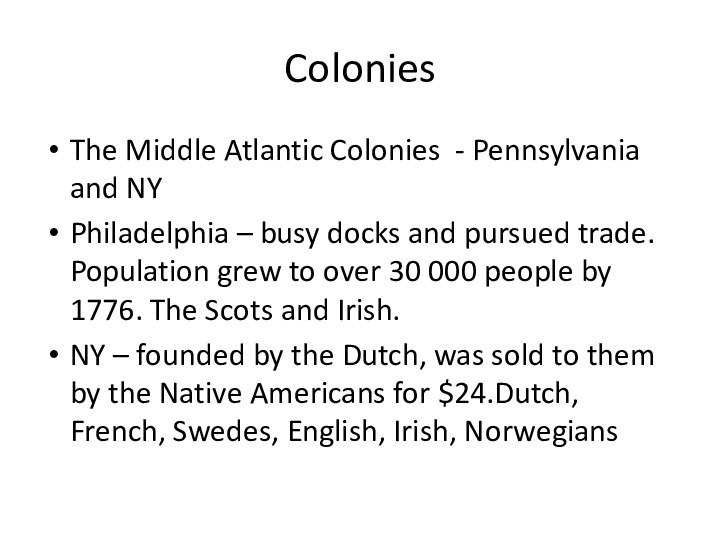
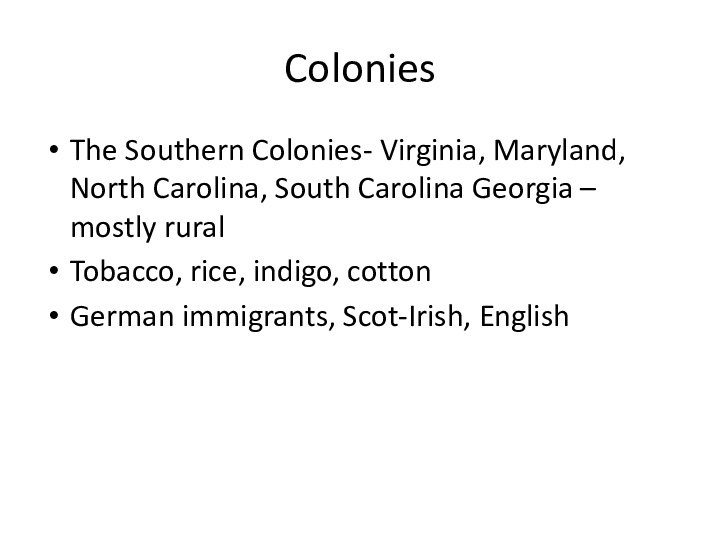
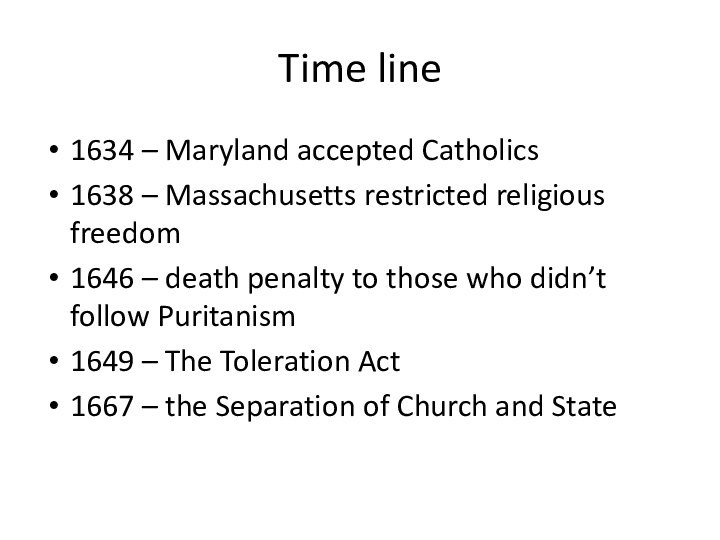
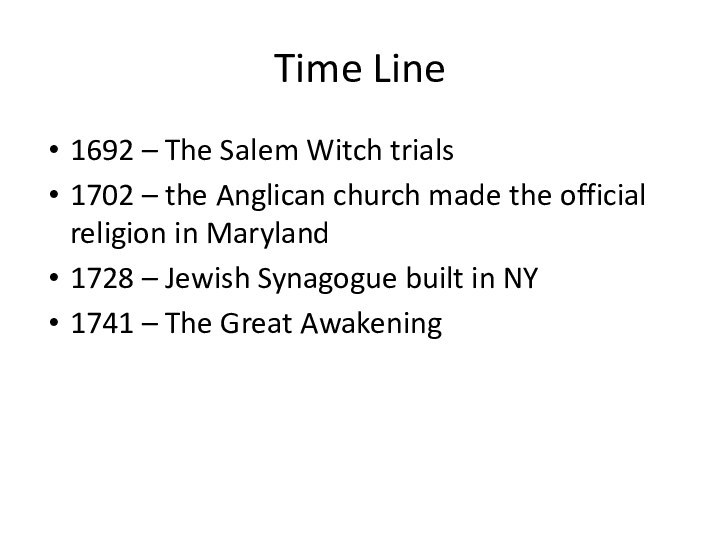
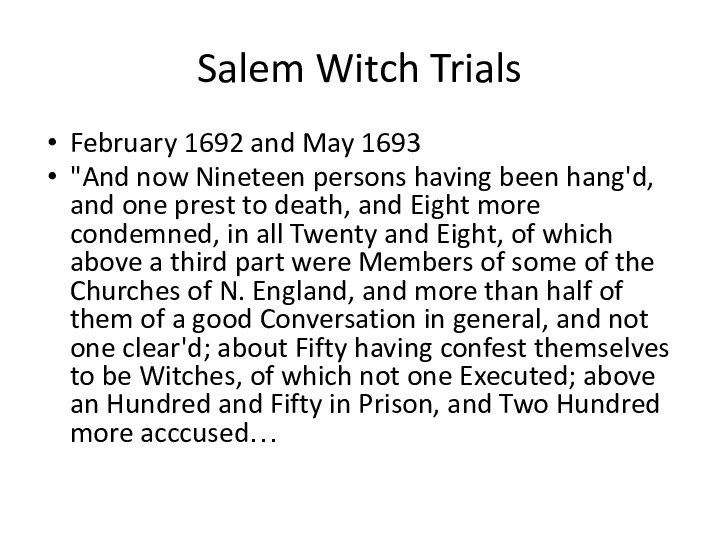
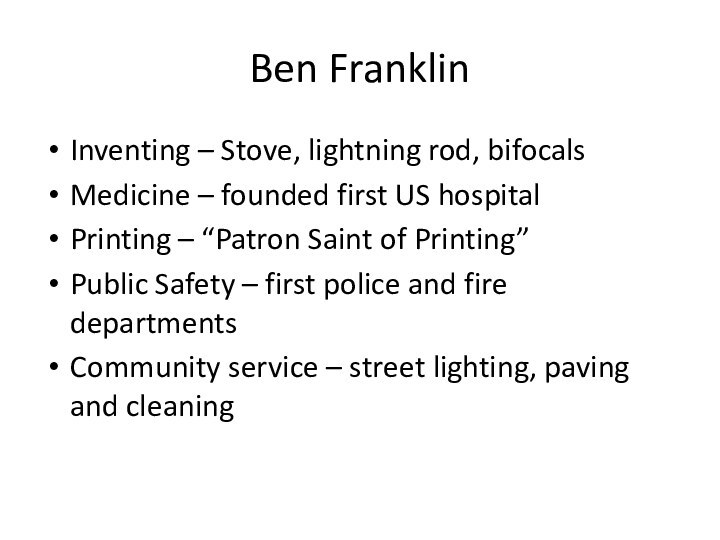
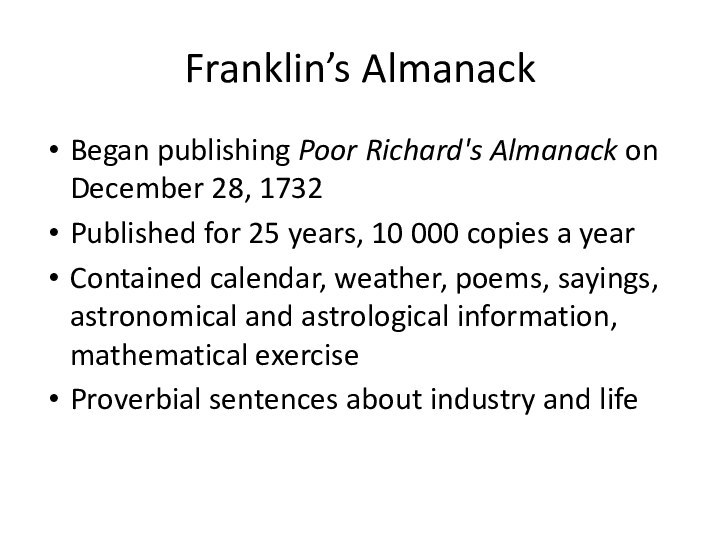
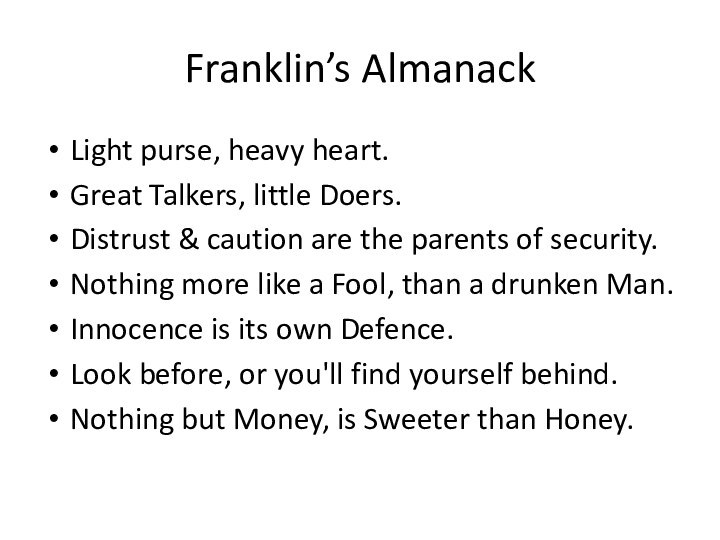
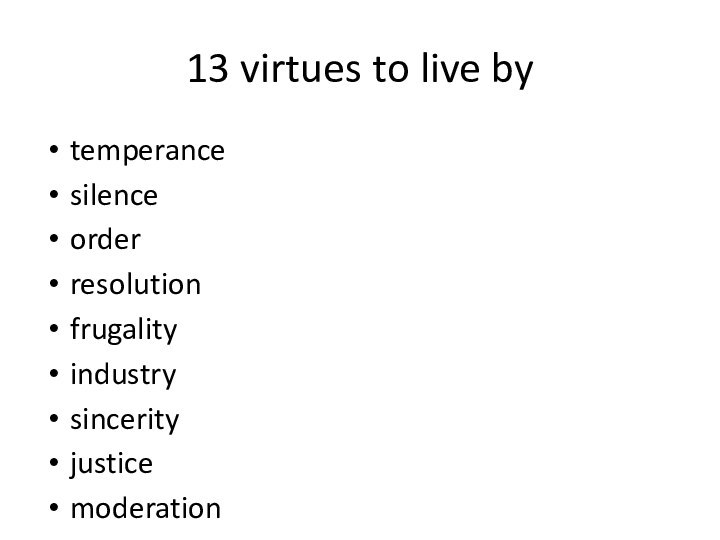
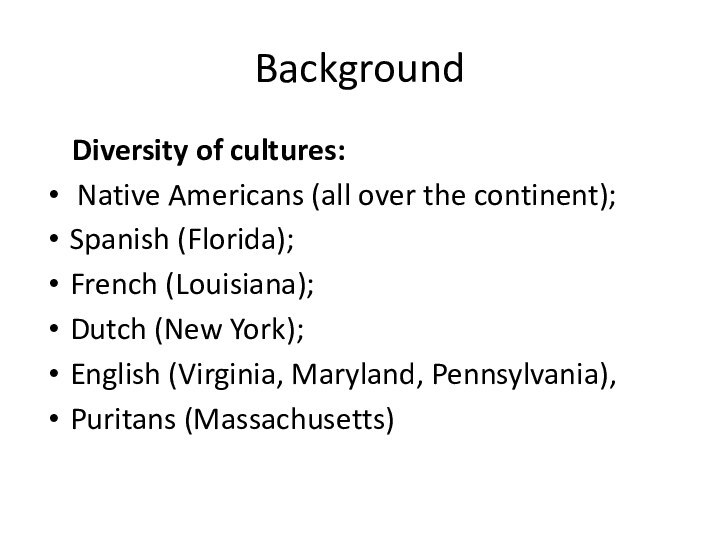
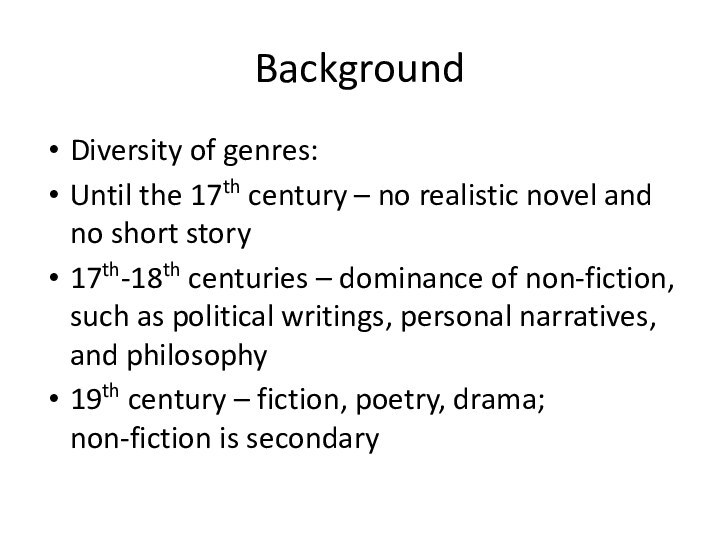
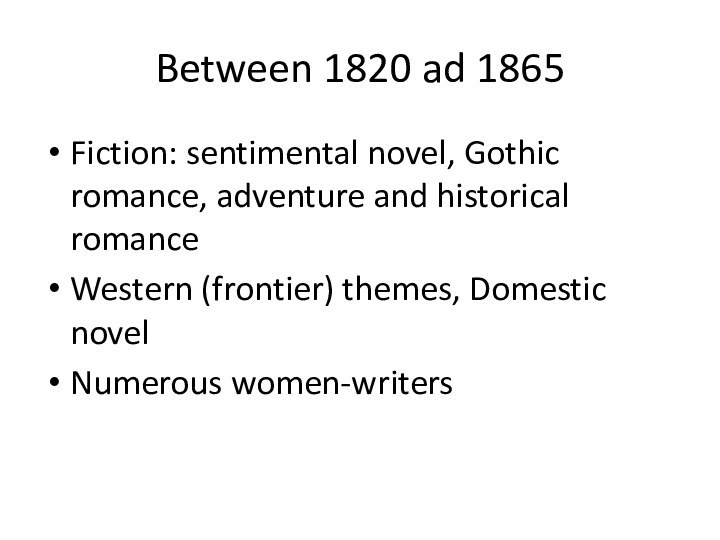
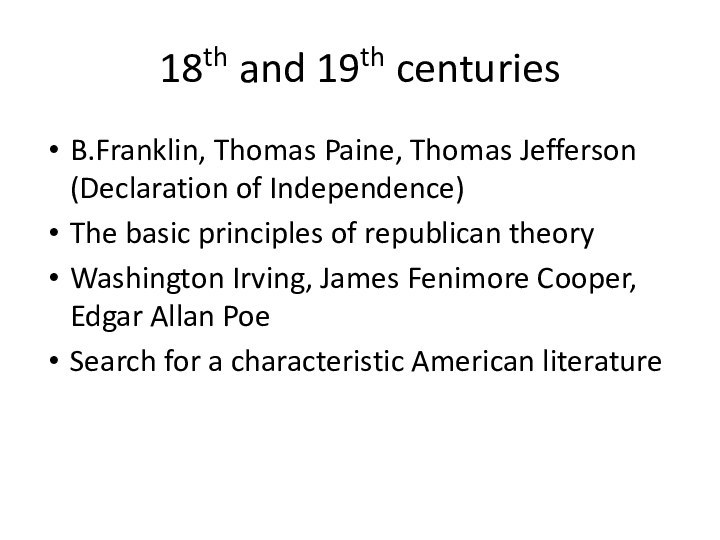
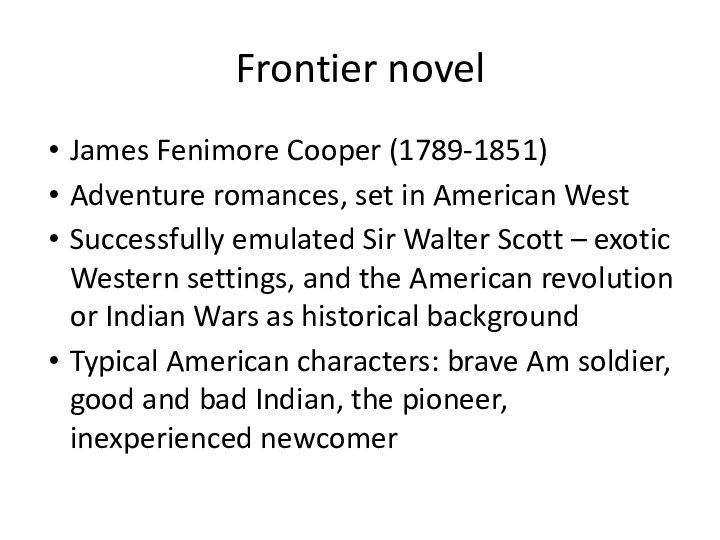
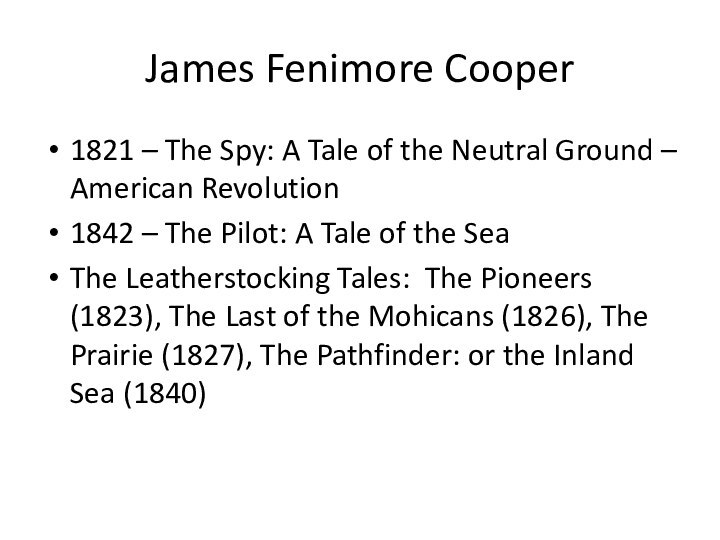
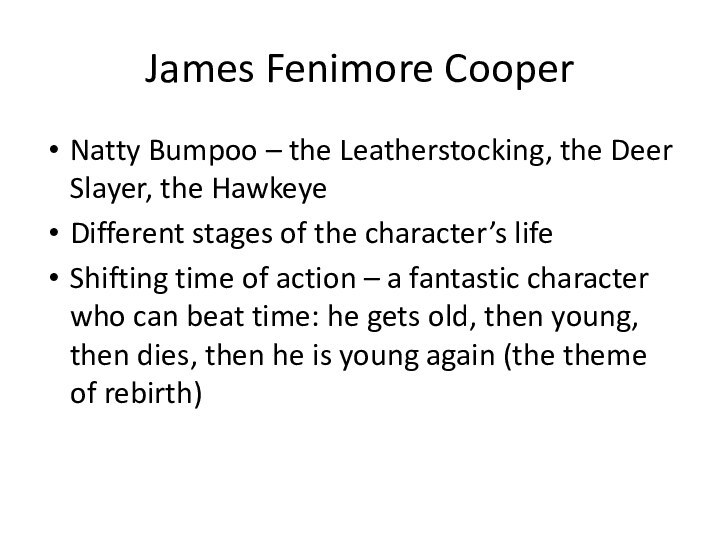
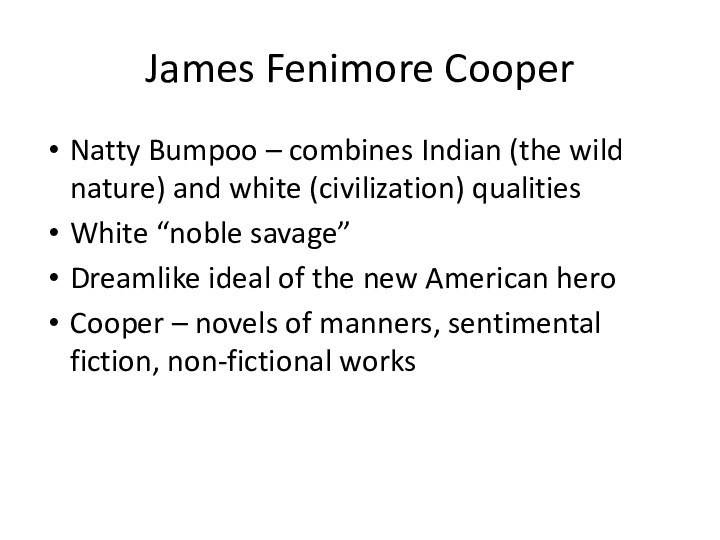
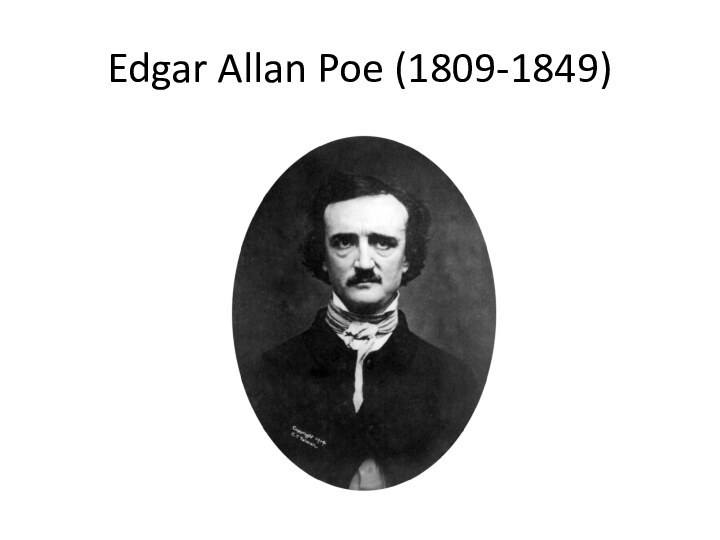
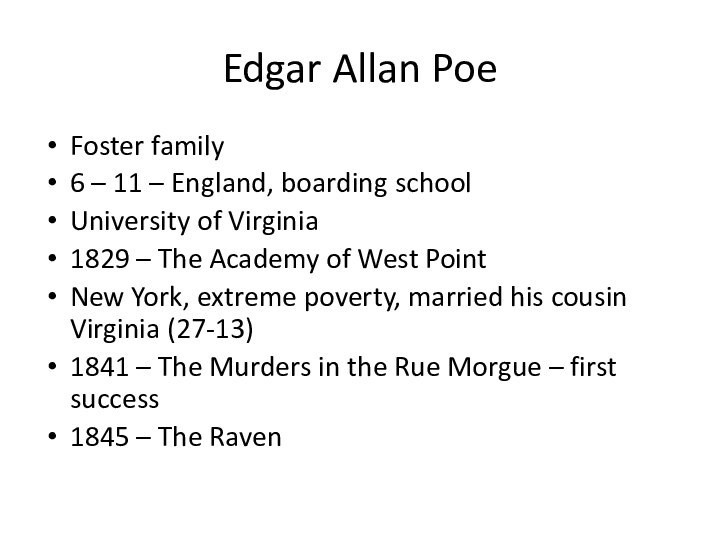
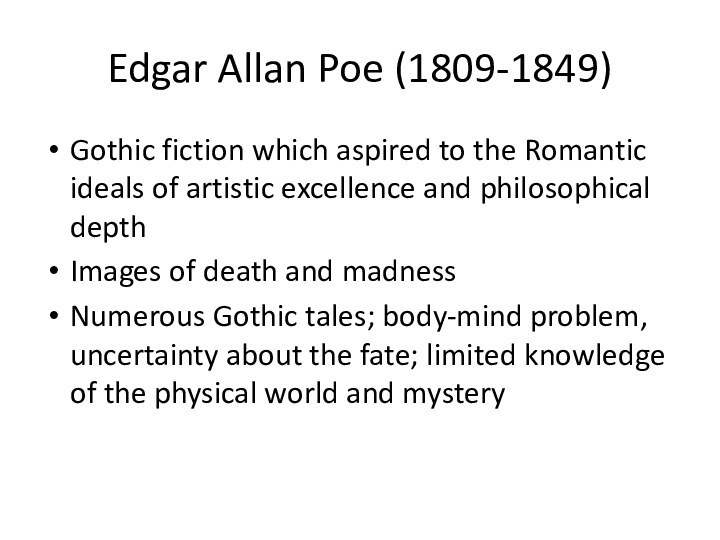
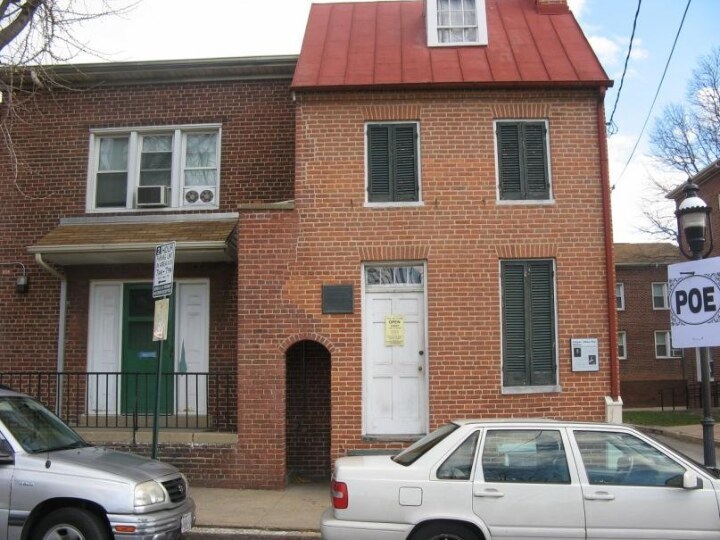
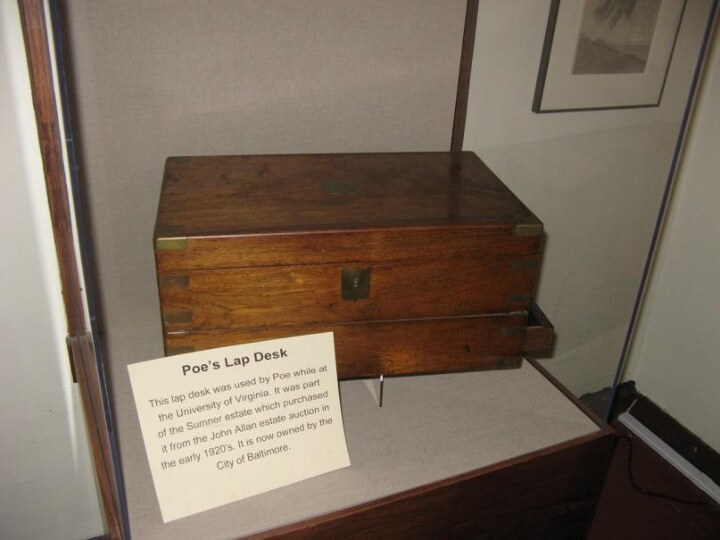
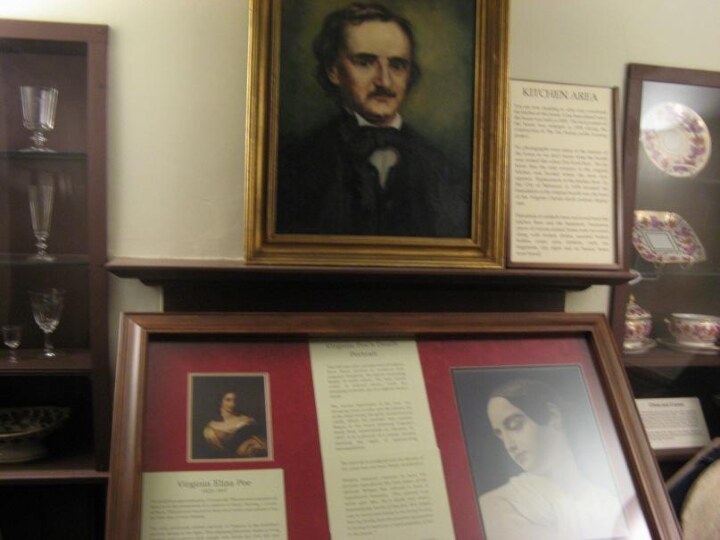
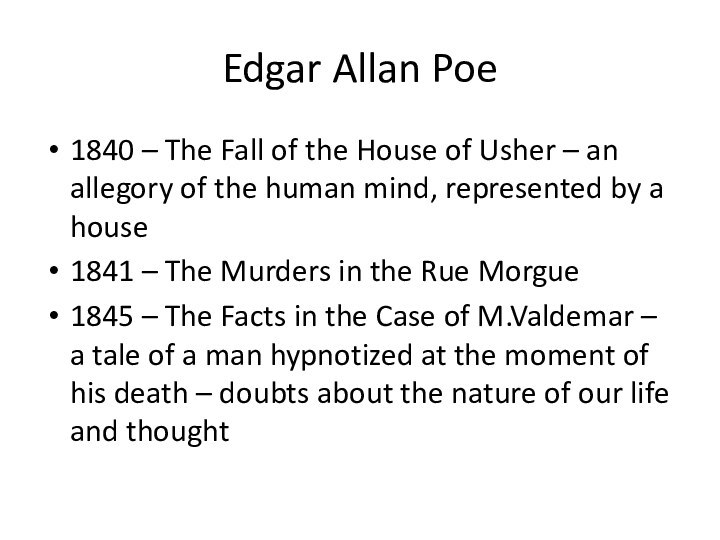
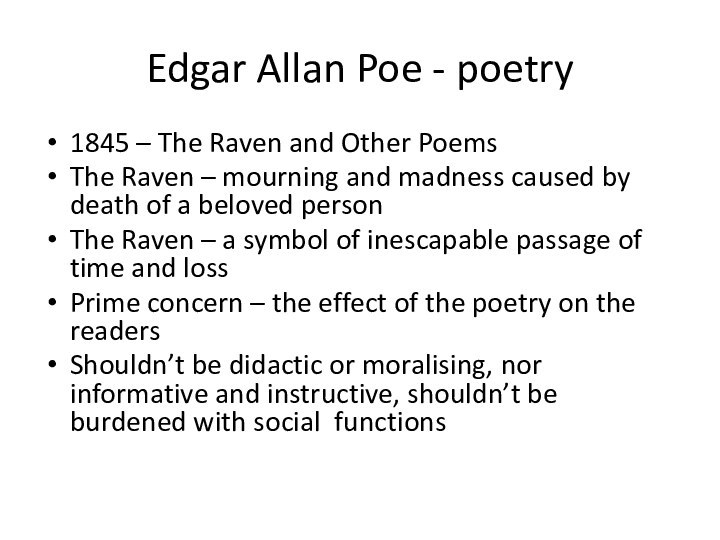
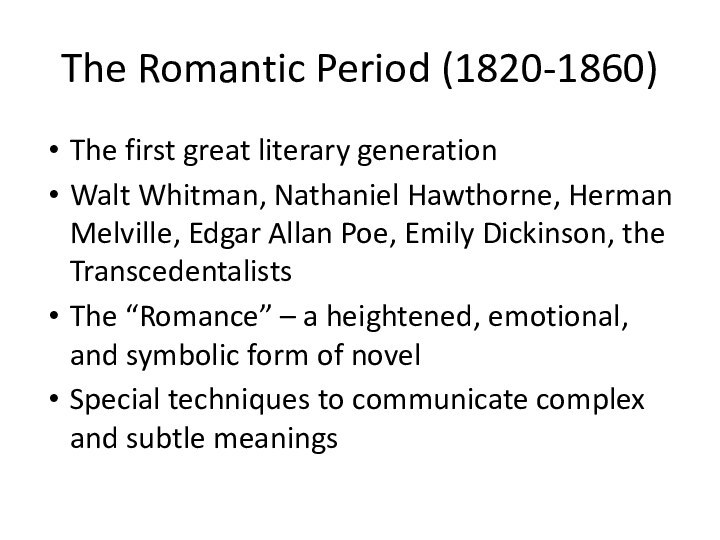
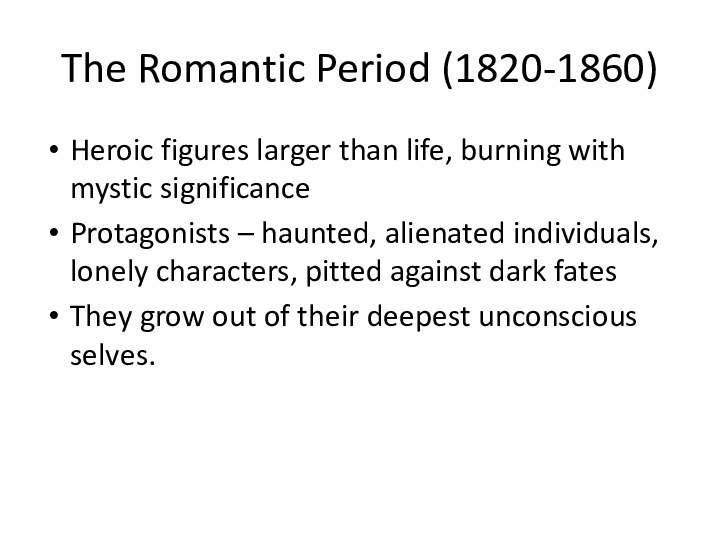
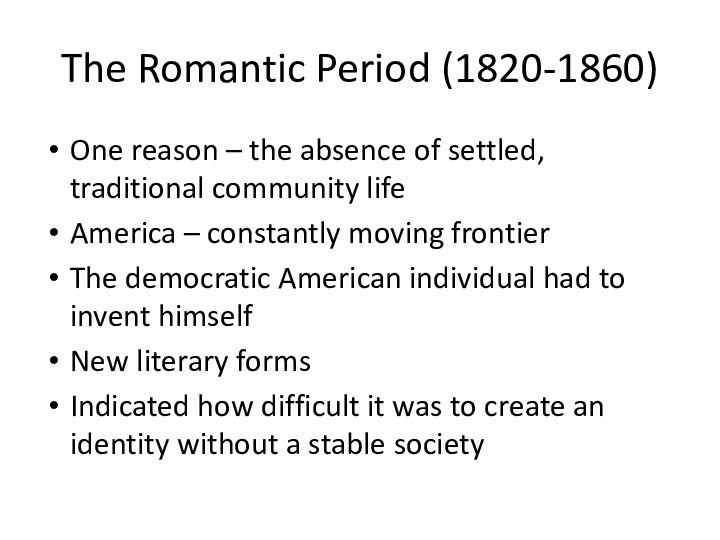
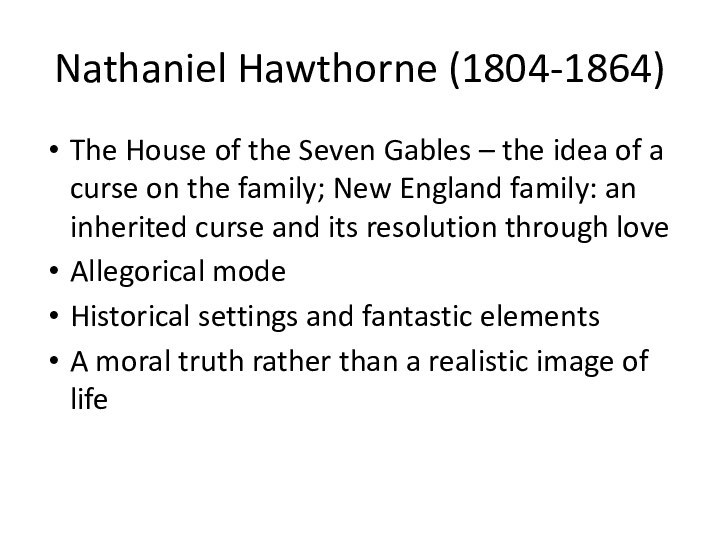
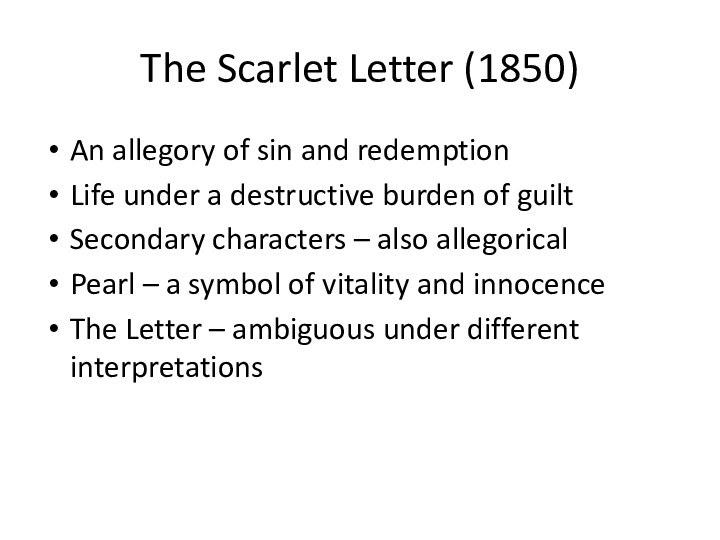
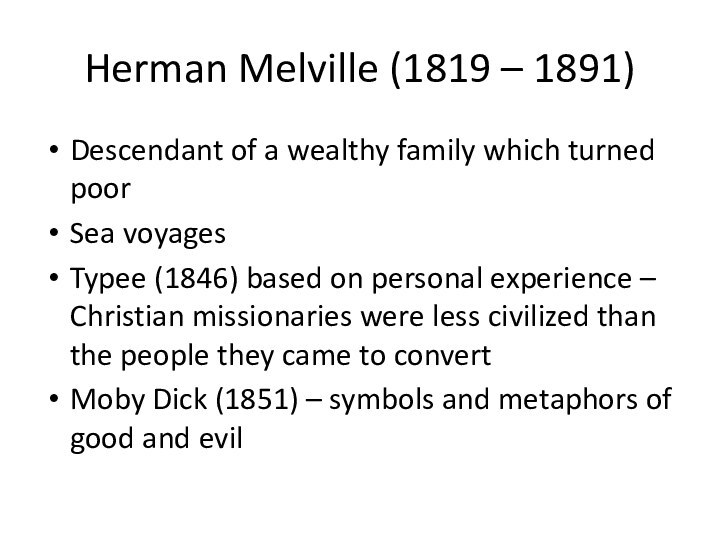
Слайд 2
Early discoveries
Lief Ericson and the Vikings
Opened the way
for other Viking voyages
the ruins of some Viking houses found at L’Anse-aux-Meadows in Newfoundland
Слайд 4
Colonization
Spanish colonies – Mexico, West Indies, South America,
Florida
French – parts of Canada
Dutch – NYC
England – the
dominant colonizerJamestown; Massachusetts Bay Colony, New Netherland
Слайд 6
Massachusetts Bay Colony
Puritans, Separatists (set out for the
New World in 1620)
The Mayflower, Plymouth
Indians helped them to
plant maize – ThanksgivingStrict religious rules in the new colony
John Winthrop – a “Puritan Utopia” for the region
Слайд 7
Colonies
The Middle Atlantic Colonies - Pennsylvania and NY
Philadelphia
– busy docks and pursued trade. Population grew to
over 30 000 people by 1776. The Scots and Irish.NY – founded by the Dutch, was sold to them by the Native Americans for $24.Dutch, French, Swedes, English, Irish, Norwegians
Слайд 8
Colonies
The Southern Colonies- Virginia, Maryland, North Carolina, South
Carolina Georgia – mostly rural
Tobacco, rice, indigo, cotton
German immigrants,
Scot-Irish, English
Слайд 9
Time line
1634 – Maryland accepted Catholics
1638 – Massachusetts
restricted religious freedom
1646 – death penalty to those who
didn’t follow Puritanism1649 – The Toleration Act
1667 – the Separation of Church and State
Слайд 10
Time Line
1692 – The Salem Witch trials
1702 –
the Anglican church made the official religion in Maryland
1728
– Jewish Synagogue built in NY1741 – The Great Awakening
Слайд 11
Salem Witch Trials
February 1692 and May 1693
"And now
Nineteen persons having been hang'd, and one prest to
death, and Eight more condemned, in all Twenty and Eight, of which above a third part were Members of some of the Churches of N. England, and more than half of them of a good Conversation in general, and not one clear'd; about Fifty having confest themselves to be Witches, of which not one Executed; above an Hundred and Fifty in Prison, and Two Hundred more acccused…
Слайд 12
Ben Franklin
Inventing – Stove, lightning rod, bifocals
Medicine –
founded first US hospital
Printing – “Patron Saint of Printing”
Public
Safety – first police and fire departmentsCommunity service – street lighting, paving and cleaning
Слайд 13
Franklin’s Almanack
Began publishing Poor Richard's Almanack on December
28, 1732
Published for 25 years, 10 000 copies a
yearContained calendar, weather, poems, sayings, astronomical and astrological information, mathematical exercise
Proverbial sentences about industry and life
Слайд 14
Franklin’s Almanack
Light purse, heavy heart.
Great Talkers, little Doers.
Distrust
& caution are the parents of security.
Nothing more like
a Fool, than a drunken Man.Innocence is its own Defence.
Look before, or you'll find yourself behind.
Nothing but Money, is Sweeter than Honey.
Слайд 15
13 virtues to live by
temperance
silence
order
resolution
frugality
industry
sincerity
justice
moderation
cleanliness
tranquility
chastity
and
humility
Слайд 16
Background
Diversity of cultures:
Native Americans (all
over the continent);
Spanish (Florida);
French (Louisiana);
Dutch (New
York); English (Virginia, Maryland, Pennsylvania),
Puritans (Massachusetts)
Слайд 17
Background
Diversity of genres:
Until the 17th century – no
realistic novel and no short story
17th-18th centuries – dominance
of non-fiction, such as political writings, personal narratives, and philosophy19th century – fiction, poetry, drama; non-fiction is secondary
Слайд 18
Between 1820 ad 1865
Fiction: sentimental novel, Gothic romance,
adventure and historical romance
Western (frontier) themes, Domestic novel
Numerous
women-writers
Слайд 19
18th and 19th centuries
B.Franklin, Thomas Paine, Thomas
Jefferson (Declaration of Independence)
The basic principles of republican theory
Washington
Irving, James Fenimore Cooper, Edgar Allan PoeSearch for a characteristic American literature
Слайд 20
Frontier novel
James Fenimore Cooper (1789-1851)
Adventure romances, set in
American West
Successfully emulated Sir Walter Scott – exotic Western
settings, and the American revolution or Indian Wars as historical backgroundTypical American characters: brave Am soldier, good and bad Indian, the pioneer, inexperienced newcomer
Слайд 21
James Fenimore Cooper
1821 – The Spy: A Tale
of the Neutral Ground – American Revolution
1842 – The
Pilot: A Tale of the SeaThe Leatherstocking Tales: The Pioneers (1823), The Last of the Mohicans (1826), The Prairie (1827), The Pathfinder: or the Inland Sea (1840)
Слайд 22
James Fenimore Cooper
Natty Bumpoo – the Leatherstocking, the
Deer Slayer, the Hawkeye
Different stages of the character’s life
Shifting
time of action – a fantastic character who can beat time: he gets old, then young, then dies, then he is young again (the theme of rebirth)
Слайд 23
James Fenimore Cooper
Natty Bumpoo – combines Indian (the
wild nature) and white (civilization) qualities
White “noble savage”
Dreamlike ideal
of the new American heroCooper – novels of manners, sentimental fiction, non-fictional works
Слайд 25
Edgar Allan Poe
Foster family
6 – 11 – England,
boarding school
University of Virginia
1829 – The Academy of West
PointNew York, extreme poverty, married his cousin Virginia (27-13)
1841 – The Murders in the Rue Morgue – first success
1845 – The Raven
Слайд 26
Edgar Allan Poe (1809-1849)
Gothic fiction which aspired to
the Romantic ideals of artistic excellence and philosophical depth
Images
of death and madnessNumerous Gothic tales; body-mind problem, uncertainty about the fate; limited knowledge of the physical world and mystery
Слайд 30
Edgar Allan Poe
1840 – The Fall of the
House of Usher – an allegory of the human
mind, represented by a house1841 – The Murders in the Rue Morgue
1845 – The Facts in the Case of M.Valdemar – a tale of a man hypnotized at the moment of his death – doubts about the nature of our life and thought
Слайд 31
Edgar Allan Poe - poetry
1845 – The Raven
and Other Poems
The Raven – mourning and madness caused
by death of a beloved personThe Raven – a symbol of inescapable passage of time and loss
Prime concern – the effect of the poetry on the readers
Shouldn’t be didactic or moralising, nor informative and instructive, shouldn’t be burdened with social functions
Слайд 32
The Romantic Period (1820-1860)
The first great literary generation
Walt
Whitman, Nathaniel Hawthorne, Herman Melville, Edgar Allan Poe, Emily
Dickinson, the TranscedentalistsThe “Romance” – a heightened, emotional, and symbolic form of novel
Special techniques to communicate complex and subtle meanings
Слайд 33
The Romantic Period (1820-1860)
Heroic figures larger than life,
burning with mystic significance
Protagonists – haunted, alienated individuals, lonely
characters, pitted against dark fatesThey grow out of their deepest unconscious selves.
Слайд 34
The Romantic Period (1820-1860)
One reason – the absence
of settled, traditional community life
America – constantly moving frontier
The
democratic American individual had to invent himselfNew literary forms
Indicated how difficult it was to create an identity without a stable society
Слайд 35
Nathaniel Hawthorne (1804-1864)
The House of the Seven Gables
– the idea of a curse on the family;
New England family: an inherited curse and its resolution through loveAllegorical mode
Historical settings and fantastic elements
A moral truth rather than a realistic image of life
Слайд 36
The Scarlet Letter (1850)
An allegory of sin and
redemption
Life under a destructive burden of guilt
Secondary characters
– also allegoricalPearl – a symbol of vitality and innocence
The Letter – ambiguous under different interpretations







